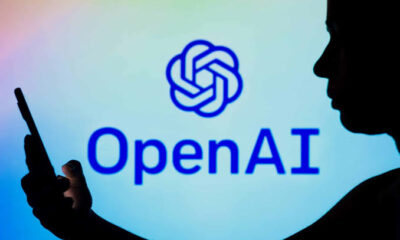
News
Navigating The Ethical Implications of Artificial Intelligence: A Comprehensive Guide
AI has the potential to revolutionize many aspects of our lives, from healthcare to transportation to entertainment, but it also raises several ethical questions and concerns.

As artificial intelligence (AI) continues to advance, the ethical implications of its use become increasingly complex and pressing.
AI has the potential to revolutionize many aspects of our lives, from healthcare to transportation to entertainment, but it also raises several ethical questions and concerns.

Navigating the ethical implications of Artificial Intelligence requires an understanding of the key issues at stake. As well as a commitment to thoughtful and responsible development and deployment.
In this comprehensive guide, we will explore some of the most pressing ethical questions surrounding AI and guide how to approach these issues responsibly and effectively.
Bias in Artificial Intelligence
One of the most significant ethical issues in AI is bias. Machine learning algorithms are only as good as the data they are trained on, and if that data is biased, the resulting AI will be biased as well. This can have serious consequences, particularly in areas like criminal justice, where biased AI can perpetuate existing inequalities and injustices.

To address this issue, it is important to be mindful of the data being used to train AI algorithms. If that data is biased in any way, steps must be taken to correct it or find alternative data sources. Additionally, it may be helpful to involve diverse perspectives in the development of AI, to ensure that a variety of viewpoints are taken into account.
Privacy and Security
AI can also raise concerns about privacy and security. As AI becomes more ubiquitous, there is a risk that personal data may be collected and used in ways that violate individuals’ privacy rights. Additionally, AI systems can be vulnerable to hacking or other security breaches, which can have serious consequences.
To address these concerns, it is important to design AI systems with privacy and security in mind from the outset. This may involve using encryption or other security measures to protect data, as well as being transparent with users about how their data will be used. It is also important to comply with relevant data privacy regulations and to have a plan in place for responding to security breaches.
Accountability
Another important ethical consideration in AI is accountability. When AI systems make decisions that affect people’s lives, it can be difficult to determine who is responsible if something goes wrong. This is particularly true for complex AI systems that use machine learning algorithms to make decisions.
READ ALSO: The Dark Side of AI: The Risks and Threats of Artificial Intelligence
To address this issue, it is important to have clear lines of accountability in place for AI systems. This may involve assigning responsibility to specific individuals or teams within an organization. Or it may involve creating oversight bodies to ensure that AI systems are being used responsibly and ethically. Additionally, it may be helpful to establish clear guidelines for how AI systems should be developed and deployed, to ensure that they are consistent with ethical principles.
[the_ad id=”41670″]
Transparency
Transparency is another important ethical consideration in AI. When AI systems make decisions, it can be difficult for users to understand how those decisions are being made. This lack of transparency can lead to a loss of trust in AI systems and can make it difficult to identify and correct problems.
To address this issue, it is important to design AI systems with transparency in mind. This may involve providing users with information about how decisions are being made. As well as making it possible for users to access and understand the data that is being used to train AI algorithms.
Additionally, it may be helpful to involve users in the development of AI systems, to ensure that their perspectives are taken into account.
However, iexclusivenews maintain that as AI continues to advance, it is important to remain mindful of the ethical implications of its use.
By addressing issues like bias, privacy, accountability, and transparency, we can ensure that AI is being developed and deployed responsibly and ethically.
While there are no easy answers to these complex ethical questions, by remaining vigilant and committed to ethical principles, we can harness the power of AI for the benefit of society as a whole.




























